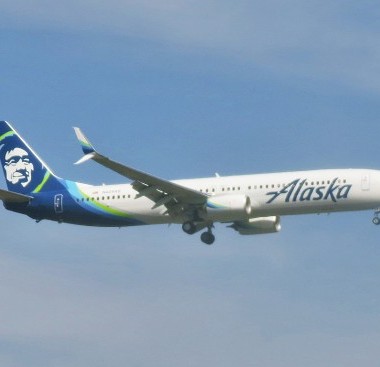Emirates’s Clark throws support behind Boeing leadership
Emirates President Tim Clark threw his support behind Boeing Co.’s leadership as the manufacturer works through a crisis of confidence triggered by a near-catastrophic accident, saying the company understands what needs to be fixed and that the reintegration of a key supplier is a step in the right direction.
“I think Calhoun and his colleagues are on it,” Clark told journalists in Berlin, referring to Boeing Chief Executive Officer Dave Calhoun. “This is so urgent. If we had any issue like this we’d take the company apart, we wouldn’t sleep. You’re expected to do the right thing.”
Clark has said Boeing has one final chance to right the company following the Jan. 5 blowout of a door panel on a 737 Max 9 model during flight. To stabilize the business, Boeing needs to review its governance model and consider enlisting support from what Clark called third parties with expertise in engineering to help Boeing address its manufacturing issues.
“Just get the quality done correctly, it’s what the US government expects, it’s what the flying public expects,” Clark said. “If they haven’t got the message, they’ll never get the message. I think they got the message.”
Emirates is among Boeing’s most important customers, having recently added to its fleet of 777 widebody aircraft. Clark said Calhoun and the head of the civil aircraft business, Stan Deal, should be given a chance to make the required fixes, and that “they understand it, they have to get the people to do it.”
Boeing’s talks to bring back Spirit AeroSystems Inc., the supplier of large parts of its airframes, are a “step in the right direction,” Clark said. Spirit said last week that it’s exploring strategic options, and Boeing confirmed that the two sides are in discussions about bringing the former subsidiary back under its roof.
Rolls Engines
In his wide-ranging comments about the state of the aviation industry, Clark said UK engine supplier Rolls-Royce Holdings Plc has realized that it needs to improve the performance of its engine that powers the Airbus SE A350-1000. Clark has made a purchase of that aircraft conditional on Rolls-Royce improving durability of the powerplant, saying that right now the engine needs to come off wing for inspections every 500 cycles rather than the 2,500 cycles that Emirates wants.
“I’m saying it as it is, there’s no point beating around the bush trying to be kind to people who are not actually doing the job,” Clark said. “He knows he’s got a problem, he’s determined to sort it out, Guillaume has been on his back,” he said, referring to Rolls-Royce CEO Tufan Erginbilgic and Guillaume Faury, the Airbus CEO.
Airbus should consider stretching the A350-1000 model to better compete with the Boeing 777-9 widebody, Clark said. For now, the A350-1000 is Airbus’s largest in-production aircraft, after Clark lobbied in vain to keep the double-decker A380 going. Given that airports are increasingly capacity constrained, aircraft manufacturers need to do their part and build bigger planes, Clark said.
Emirates remains by far the biggest operator of the A380, which it is kitting out with new interiors to expand the plane’s lifespan well into the 2030s. Most other operators have either scaled back or removed the double-decker from their fleets because it’s too complex and costly to operate.
Similar Stories

Citywide sale-leaseback highlights Phoenix Airport submarket
View Article
Carrier executive sees window for innovation and collaboration
View Article
Silk Way Alat Free Economic Zone Company and Modern Construction Group sign landmark agreement
View ArticleCPaT announces new contract with expanding airline, Blue Jet Airways KG
CPaT Global, the world’s leading provider of distance learning for the airline and aviation industry, today announced a new contract with Blue Jet Airways KG. CPaT will provide Blue Jet…
View Article
Norse Atlantic expands to Stockholm with new direct flight to Bangkok
View Article
LATAM Cargo Group launches pioneering initiative in Chile with recycled plastic pallets
View ArticleGet the most up-to-date trending news!
SubscribeIndustry updates and weekly newsletter direct to your inbox!





